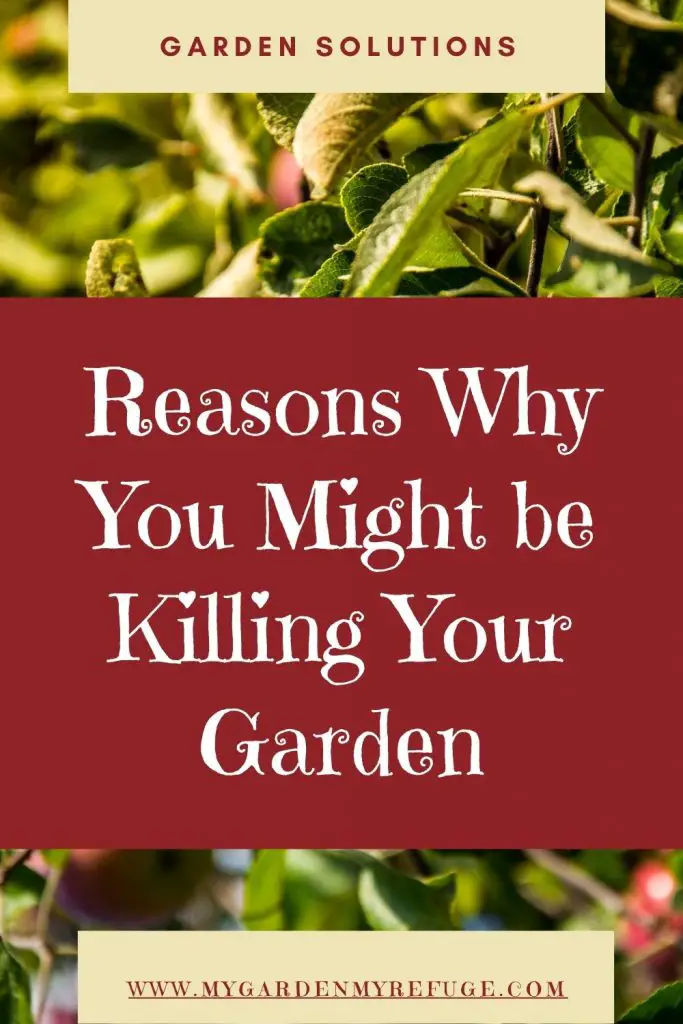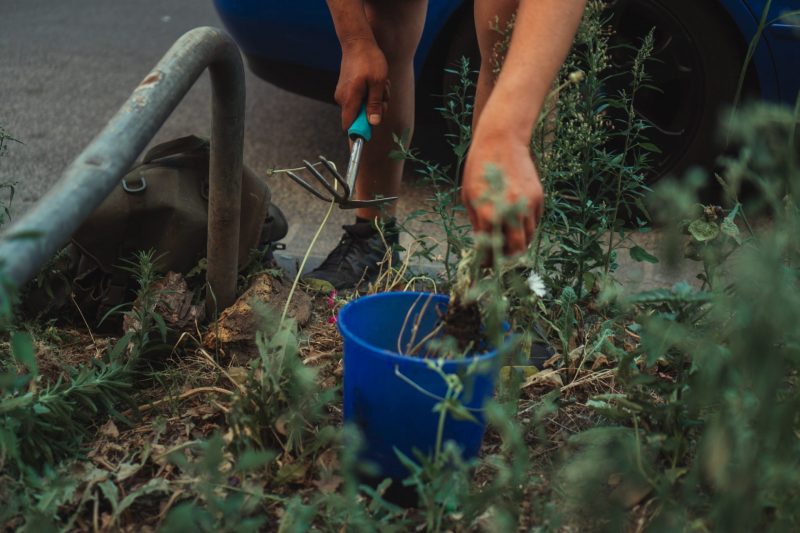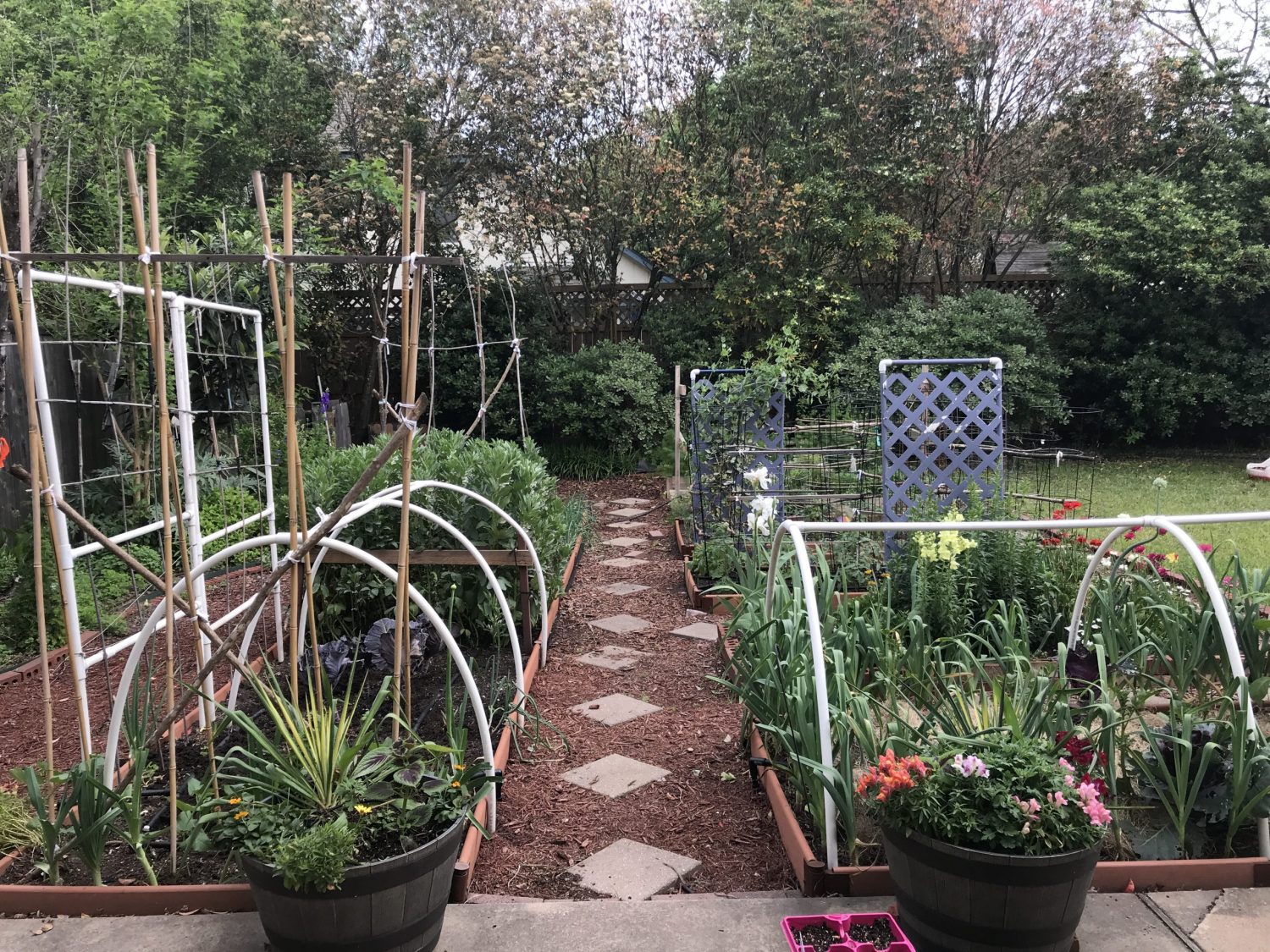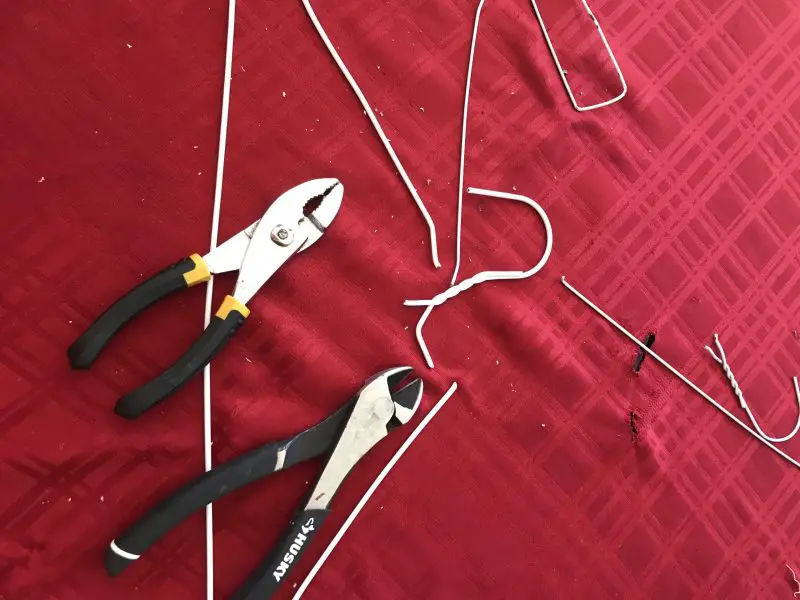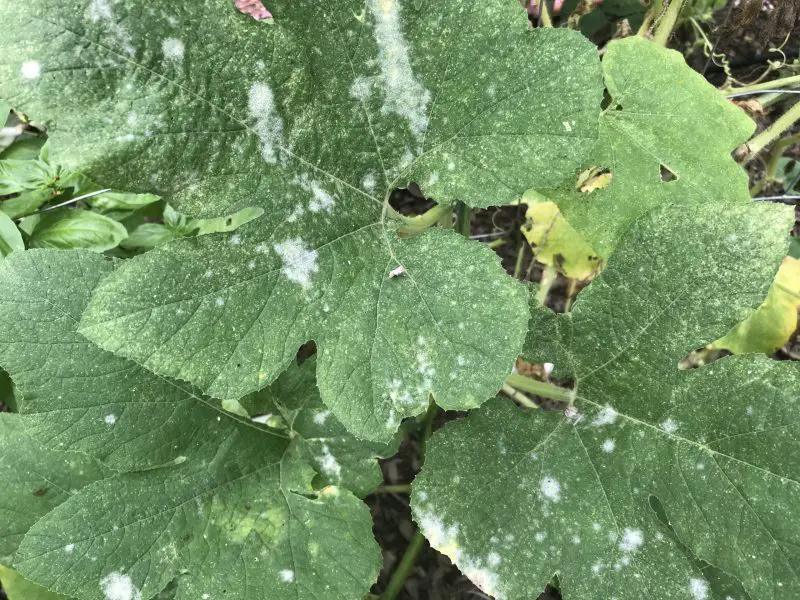Many think they have a brown thumb, for they cannot keep their garden alive. The truth is that anyone can grow a garden by following the right approach. Gardening is not an exact science; it is an adventure a person takes to connect with nature and escape the hassle of life. Let’s look at some reasons you might be killing your garden.
#1 Not doing your homework
The common thought is that gardening is about putting a seed or a plant in soil, watering it and watching it grow. However, the reality is that there is a lot of science behind it. Therefore, educating oneself on how to start a garden and maintain it is crucial. Start by learning about your growing zone or region and distinguishing its growing seasons.
After that, you should learn about your soil and its properties, such as structure, texture, and components. Finally, it will help you with the following step: deciding the growing methods and plant selection.
After knowing your growing seasons and soil and deciding what growing method to use, it is time to make the plant selection.
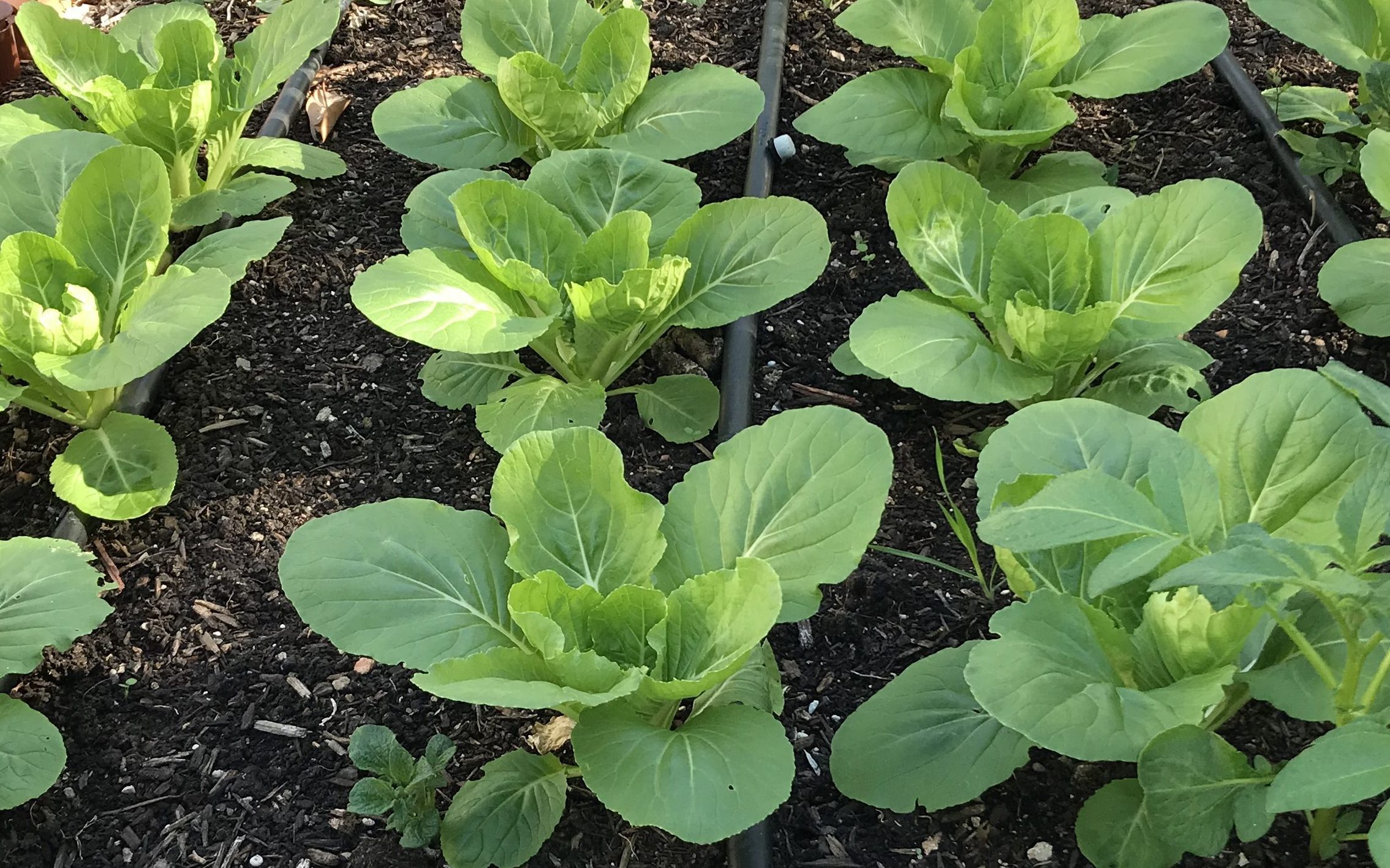
#2 The wrong plants choice
Wrong season
Different plants grow in different seasons. Therefore, growing seasons are slightly different from the common ones. In gardening, we talk about cool-season and warm-season crops. Planting the wrong crop at the wrong time will undoubtedly have deceiving results.
Wrong growing requirements
Growing requirements include sun exposure, soil quality, and water needs. It is essential to provide the proper environment for the plant not only to keep it alive but for it to thrive. A sun-loving plant like a tomato will live in a part shade spot, but it won’t reach its optimum size and won’t be productive.
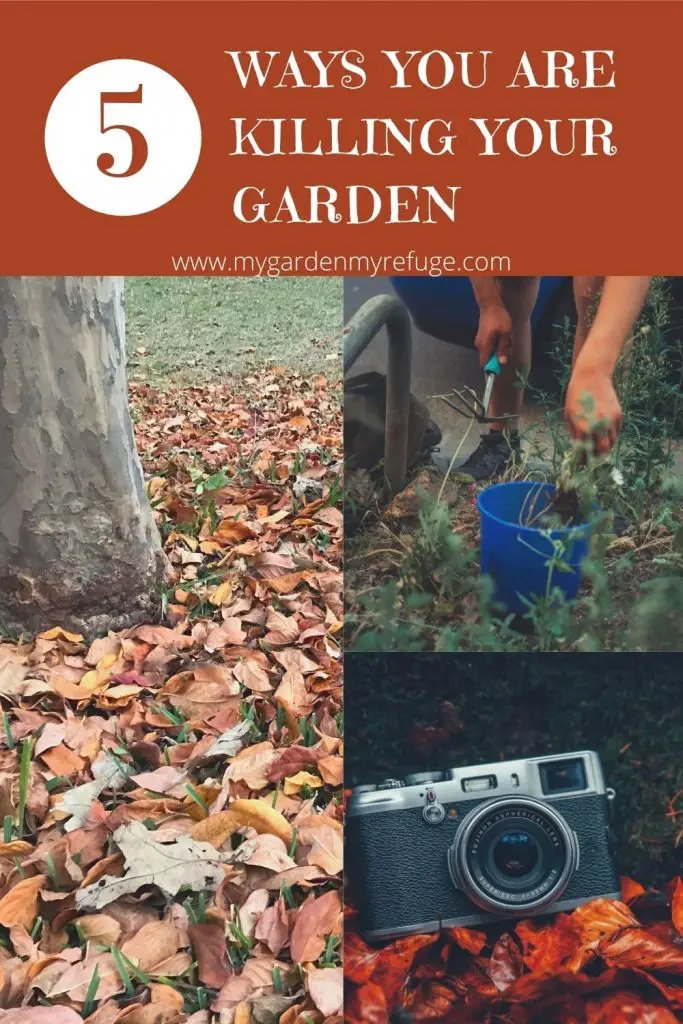
Wrong pairing
In a home garden, we tend to plant more than one kind of plant in the same area to save space. There is nothing wrong with that if we do it properly. However, planting two crops close to each other ensures they have similar growing needs. For example, don’t place a water-hogging plant with one that needs very little water.
High maintenance plants
New gardeners tend to be overenthusiastic and try to grow everything. The problem is that some plants need much care and attention, such as pruning, trellising, pest control, and deadheading. Therefore, when starting a garden, choosing plants that are somewhat easy to grow is best.
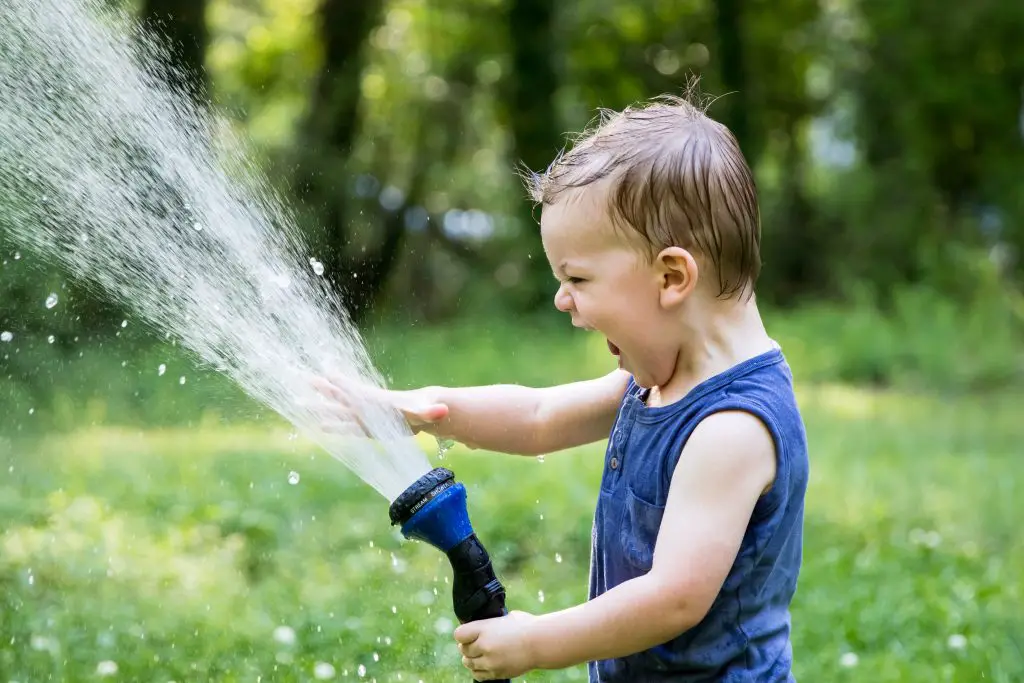
#3 Too much love
Excessive watering
I met quite a few clients that think gardening is all about water. So, they water their plants constantly until they drown them. Indeed, water is crucial to keep your garden alive, but overwatering is just as bad as less watering. It oversaturates the soil and reduces the amount of oxygen in it, which the plant needs for its lively functions. It may cause several problems such as root rot, fungal diseases, and eventually the death of the plant.
The best practice is to check soil moisture before each watering. Insert your finger an inch deep into the soil; if it comes out moist, there is no need to water. There are also soil moisture meters if you prefer to be more accurate. After a few practices, you will understand your soil better and will be able to set the proper watering schedule.
Too much fertilizer
Overfertilizing is another lousy practice I noticed in some of my clients. The recommendation is to add a dry fertilizer to the planting hole to provide an initial boost to the plant. So, some new gardeners feel generous and think the more they add, the faster the plant grows, which is wrong. The transplant is like a baby. You feed it only the amount it needs. Adding too much fertilizer may cause root burn and stunt the plant’s growth.
Make sure to use fertilizers wisely by following the instructions on the label. Also, try to opt for organic choices over salt-based fertilizers, which tend to cause this issue more often.

#4 Neglect
Having a garden requires some work initially, but it will become more of a routine once established. Consider the first three years of gardening as a discovery phase of learning through trial and error. After that, you will be more confident and might be able to set a few tasks on autopilot. Once again, a new garden is like a growing child. It needs all your attention at first, and then slowly, it will take care of itself.
#5 Excessive pest control
When you become a gardener, you should realize that you are becoming nature’s partner, not a regulator. Working in the garden will expose you to many pests and weeds, and there is no way you will exterminate them. The excessive use of herbicides and pesticides creates an imbalance in nature.
We must remember that everything has a reason to exist. Just like animals, insects also have prey and predators. So, learn more about the insect you meet before killing it. Some easy solutions are encouraging beneficial insects in the garden or using physical barriers. If the problem is overwhelming, you should use chemicals with care and wisdom.
Weeds also are a nuisance in the garden, but that does not justify the excessive use of herbicides. The latter are non-selective and can destroy a landscape after several applications. Instead, use an organic approach and feed your soil to make it a suitable environment for your desired plants. Also, try to pick the weeds regularly before they go to seed to reduce the chances of returning. On a different note, you might consider having peace with most weeds once you learn about their usefulness.
